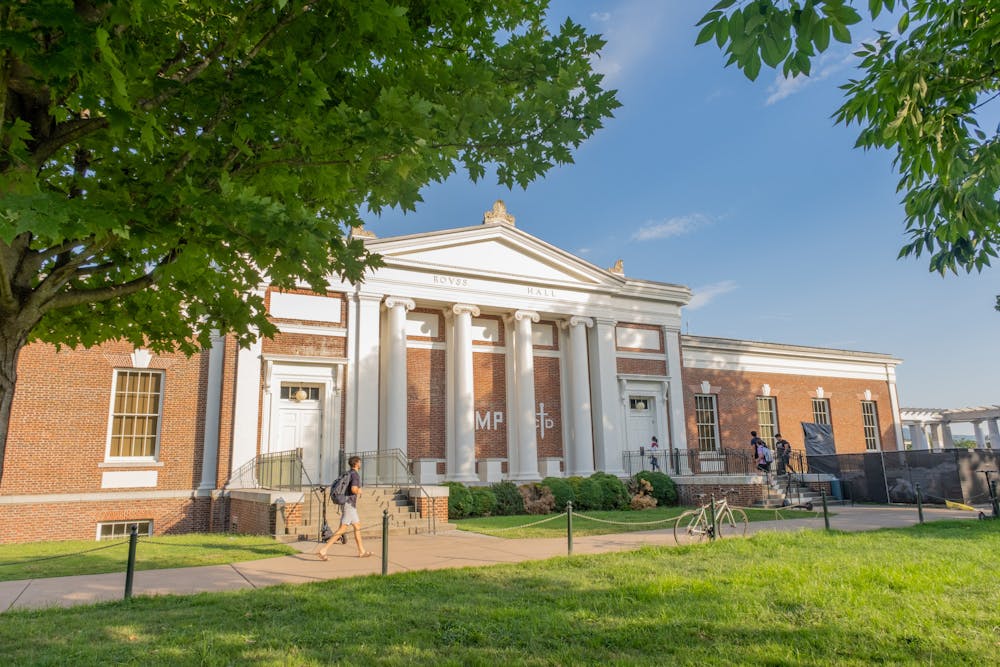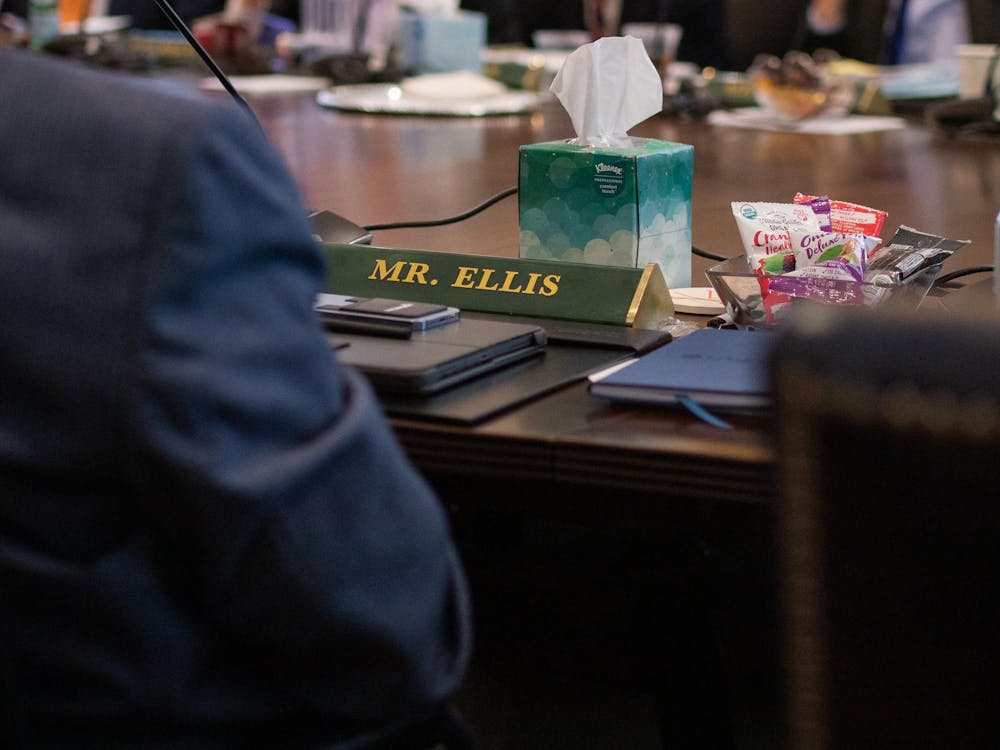The McIntire School of Commerce will switch its undergraduate program from a two-year to a three-year program starting in the fall of 2024. The leaders behind this change hope to give students more flexibility in their coursework during their time at the Commerce school and better prepare them for competitive employment recruiting cycles.
Traditionally, prospective McIntire students begin in the College and apply at the end of their second year for matriculation into the Commerce school third year. Under the switch to a three-year program, announced Aug. 29, first-year students will matriculate in the beginning of their second year and apply in their first — beginning Fall 2024.
All current first and second-year students will still apply into the two-year program during their second year — the Class of 2028 will be the first to apply in their first year.
Demond Morris, Commerce Council president and fourth-year Commerce student, called the change “definitively necessary.”
He explained that the switch to a three-year program will allow the Commerce School to remain competitive with other elite business schools using three or four-year programs and will be more beneficial to students searching for jobs in the business world.
“It's all about setting our students up to succeed, and I think this will be the best way to do [that],” Morris said.
In the last several years, recruitment cycle timelines for business internships and jobs have accelerated. Many students must work to secure an internship for the summer after their third year, Morris said.
“McIntire has limited intervention to ensure that our students, who are out there recruiting, who are the face of the University of Virginia, are being able to hold themselves in these interviews … and be able to compete with the other institutions across the country for these very limited jobs,” Morris said.
The University joins many other top-ranking business schools that welcome underclassmen. At the University of North-Carolina’s Kenan-Flagler Business School, students apply the summer after their first year. The University of Michigan’s Ross School of Business offers direct admission when students fill out the Common Application, in addition to an admissions process for students entering Ross in their second year.
McIntire’s announcement did not specify whether future first-years will apply to the program in the spring or summer.
Fourth-year McIntire student Carly Price said she agrees the change will benefit the large numbers of students applying to internships. After going through the internship recruitment process after her second year, Price said she felt at a slight disadvantage given her lack of prior business classes.
“I think it would have been nice to have the perspective of a year of business school behind me before I started that process,” Price said.
Morris also said the curriculum change will create flexibility for both accepted and prospective Commerce students. A prolonged curriculum will allow the school to devote more time to career development for students.
A three-year program will also be more advantageous to students not accepted into Commerce who must pivot to find enough credit hours to declare a new major to graduate on time, Morris said.
In 2022, the Commerce acceptance rate was 61 percent from a pool of 613 students. Applicants must take ten prerequisite courses before applying, including Foundations of Commerce, Introduction to Statistical Analysis and Microeconomics.
Under the new program, Commerce will only require applying students to complete one introduction to commerce course as a prerequisite. Morris said he hopes the reduced prerequisite requirements will also encourage more students to apply and help promote equity within McIntire.
“Currently, the structuring of the prerequisites, they can be very daunting and they truly limit the student's ability or mindset to believe that they can get into [Commerce],” Morris said.
Instead, Morris said Commerce administrators want students to be able to succeed in their first year and use the school as a resource in helping them through these courses in their second year.
While in favor of the new program, fourth-year Commerce student Alexander Hunter conversely said the earlier application process may favor students with stronger high school resumes, since they will have less time to get involved at the University before applying to McIntire.
“You literally have one semester of college to go off with, and most people have pretty much the same resume after the one semester here,” Hunter said. “I think a lot of kids will drive themselves crazy, in the first week of school — ‘how do I prepare if my Commerce school application is due in like three months?’”
While Morris said he cannot predict how the curriculum change will change the competition between applicants in gaining a spot in McIntire, he said he hopes it will encourage more people to apply.
Along with anecdotal stress and competition between applicants preceding admission, Commerce comes with a notable price tag. In-state students pay $30,336 in tuition and fees, compared to in-state upperclassmen College students who pay $21,730. Out-of-state Commerce students pay $68,456 while out-of-state upperclassmen College students pay $59,362. Whether Commerce tuition for second-year students will differ remains unclear.
Commerce currently enrolls around 800 students — an additional class would bring this total to around 1,050. The undergoing $100 million Commerce expansion project will create new research and classroom spaces to accommodate the growth.
Despite this construction, Price wondered how Commerce would support another full class of students.
“Having that many more students in the school is just something that's gonna take time to adjust to — you need more teachers, you need more classrooms,” Price said. “I know they’re building [the expansion] but I just wonder how the mechanics of the program are going to work.”
All three Commerce students agreed, however, that the three-year program will overall serve to strengthen the school’s curriculum and outcomes. Morris specifically said students will now have more time to make connections and explore different concentrations within McIntire.
“I think this will be the best way to [prepare students], whether that's really the career development side of things, whether that's from curriculum flexibility, and the ability to have more time in the classroom to focus on critical skill development,” Morris said.
CORRECTION: A previous version of this article stated that Commerce currently enrolls 700 students. Commerce actually enrolls 800 students and the article has been updated to reflect this change.







